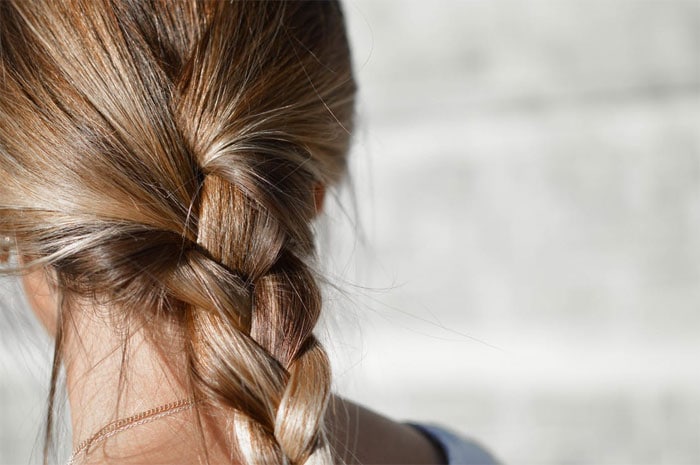
Written By: Owennie Lee, RD
Title: Registered Dietitian
Alumni: University of British Columbia
Last Updated on:

Hair loss is definitely one of the most dreaded conditions for men and women alike, although it is perceived to afflict more men than women. Millions of dollars are spent on hair restoration products and procedures every year, but have you clued in that your diet and your lifestyle may play a role in the health of your hair – or lack thereof?
Male-pattern baldness, where hair loss is concentrated on the top of your head, is most likely hereditary and cannot be prevented. You can, however do your part by ensuring your hair and follicles are properly nourished, as that can help prevent the weakening of hair shafts and slow regrowth that is caused by nutritional deficiencies.

Table of Contents
Rich in antioxidants, various vitamins and minerals, fruits and vegetables (the more colorful the better) are a crucial part of your diet that supply the much-needed nutrients for hair growth. For example, Vitamin C is essential in the synthesis of collagen, which is the connective tissue that gives structure to hair.
Whole grain foods are great sources of insoluble fiber. Insoluble fiber is critical in fighting insulin resistance, which has been linked with male-pattern baldness in some studies. In addition, whole grain products are also a natural source of Vitamin B6 and are often fortified with folic acid, both of which are important in ensuring a good blood and oxygen supply to nourish your follicles and hair.
Hair is mostly made up of the protein keratin, so it is no surprise that the protein from dairy products can help support hair growth. Most fluid milk is also enriched with Vitamin A, which helps prevent hair loss caused by Vitamin A deficiency.
Not only are lean meats a source of high-quality protein, they also contain ample amounts of B vitamins, such as Vitamins B6 and B12 and biotin. More importantly, meats supply iron and zinc, which are required to prevent hair loss associated with deficiencies in these minerals.
WaterLast but not least, consuming sufficient (non-caffeinated) fluids will help with nutrient transportation, which keeps your hair hydrated and strong. Stay away from chemical-laden sodas.
A 2006 study done by researchers from the University of Oulu, Finland linked male-pattern baldness (androgenic alopecia) to insulin resistance. Although a subsequent study in 2009 by a group of Iranian researchers was unable to repeat the findings, it does not hurt to start including more of the above foods to prevent insulin resistance, even if it may not restore your hair. Putting an emphasis on consuming the foods listed above can also ensure you have the proper nutrition to support your follicles and hair shafts.
Alumni: University of British Columbia – Owennie is a registered dietitian with a soft spot for chocolate and coffee. She is a believer in balance and moderation, and is committed to keeping healthy eating enjoyable and fun. Owennie received her dietetics training in Vancouver, and is a member of Dietitians of Canada and the College of Dietitians of British Columbia. She has experience in a wide variety of settings, such as clinical nutrition, long-term care and outpatient counseling. Owennie has also worked for a community nutrition hotline and participated regularly as a guest radio host, where she enjoyed sharing her passion and knowledge about food and nutrition with people.
antioxidant, dairy, fruits, hair, vegetables, vitamin a, water, whole grains, zinc